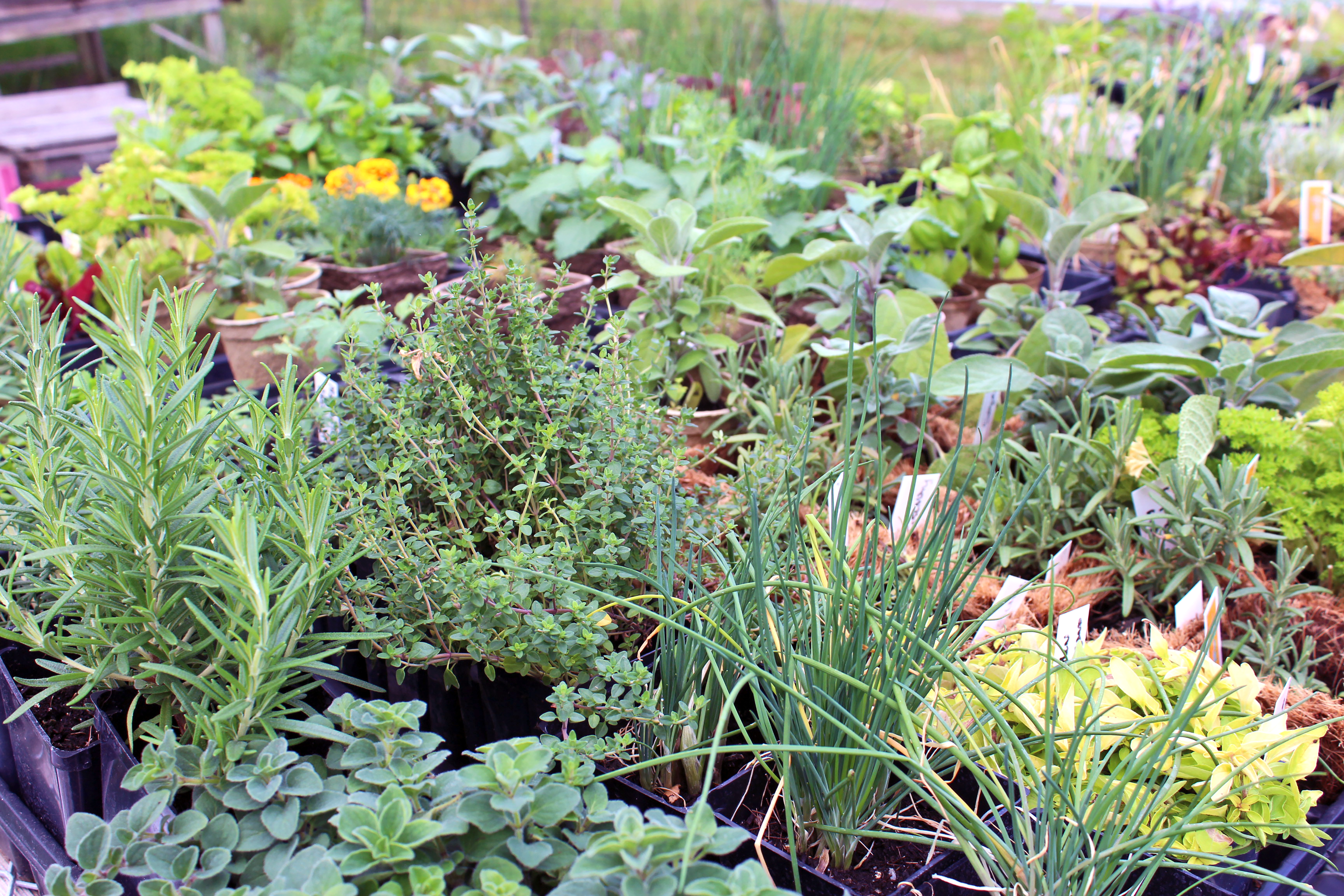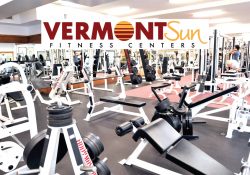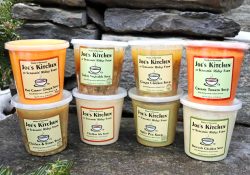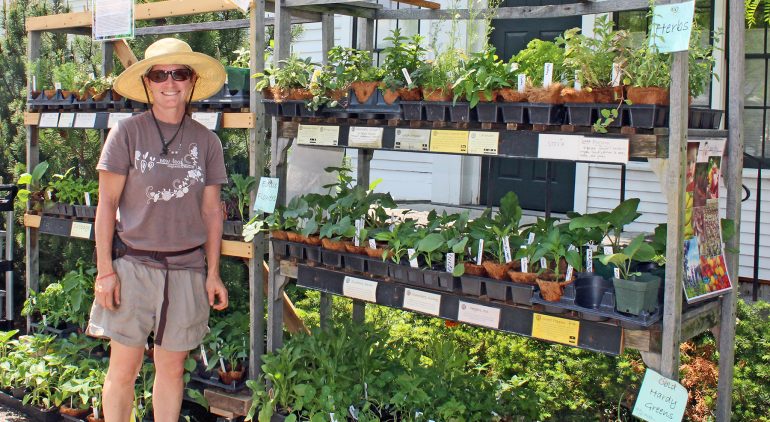
Why Choose Local Seedlings?
Memorial Day weekend is upon us, and according to local garden lore, this marks the date when many feel it’s officially safe to put even the most frost-sensitive seedlings into your soil. When choosing your plants this year, we invite you to check out our gorgeous local seedling offerings from New Leaf Organics!
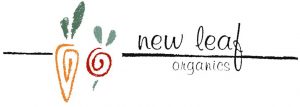
New Leaf Organics is a 1st generation woman-owned, certified organic farm nestled on the town line between Bristol and Monkton. Led by Jill Kopel, New Leaf Organics has been growing high-quality, deliciously fresh organic produce and flowers since 2000. As a gathering place for people through musical events, biking, flowers, and food, New Leaf is a lively and welcoming farm with a deep commitment to the local food system. Everything they grow is sold in Vermont, most of it within 25 miles of the farm! When in season, you can find their spinach, kale, parsley, fresh onions, and more glorious veggies & herbs in our produce department, but you may not realize that the full lineup of local seedlings sold on the Co-op plaza this time of year also comes from our green-thumbed friends at New Leaf! In this week’s Addison Independent, you’ll find a coupon for $3 off any local seedling at the Co-op, so this is a great time to adopt a few plants for your garden or sunny porch!
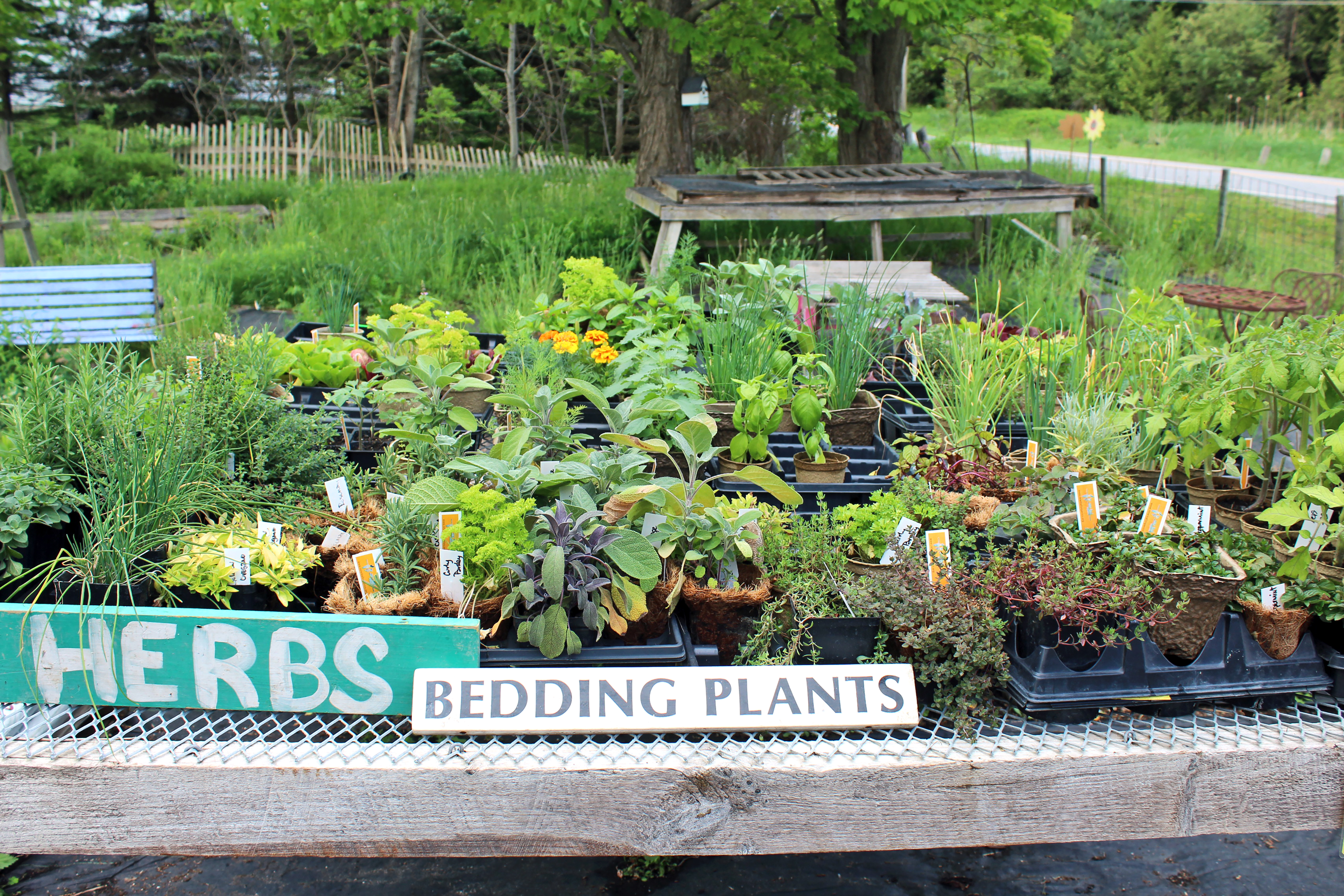
So, why choose local seedlings?
Aside from the fact that you’re supporting a wonderful local farm and keeping your dollars local, it makes good sense to purchase local seedlings for the assurance that you’re buying healthy plants that are regionally appropriate for our unique growing conditions here in Vermont. You’re also helping prevent the spread of plant diseases (blight, anyone?) and invasive pests like root aphids that travel in the soil. Additionally, many plants from large commercial nurseries, box stores, and garden centers are treated with plant growth regulators or PRGs. This class of chemicals is applied to nursery plants to preserve or encourage certain traits that help make plants more marketable. This might include bloom-holding capabilities on flowers or growth-stunters that would keep tomatoes, peppers, and the like from growing leggy while awaiting sale. PRGs are classified as pesticides and the residues of PGRs in agricultural products are seriously detrimental to human health due to their hepatotoxicity, nephrotoxicity, genotoxicity, neurotoxicity, carcinogenicity, and teratogenicity. Plants at large garden centers are also often treated with neonicotinoids. These chemicals are systemic, which means they are absorbed by the plant tissues and expressed in all parts, including nectar and pollen. Unfortunately, this spells disaster for bees, butterflies, and other pollinators that are so vital to our health and the resilience of our food supply.
By choosing local, organic seedlings, you’re choosing to support local farms, your local economy, and preserving the health of your local ecosystem. It’s a win-win!
